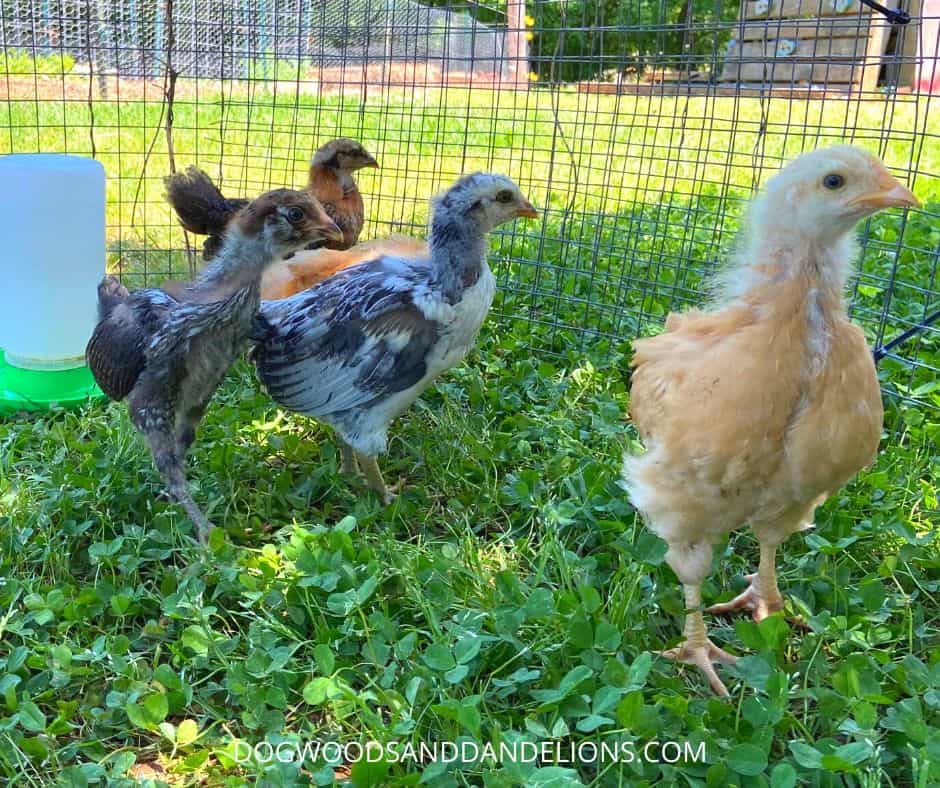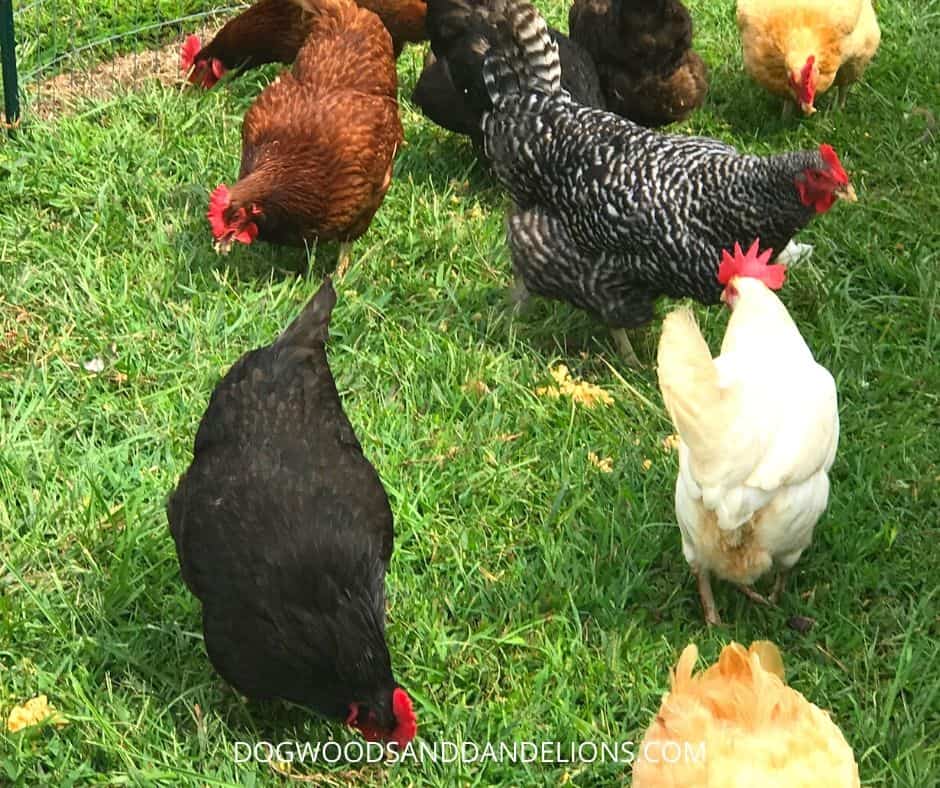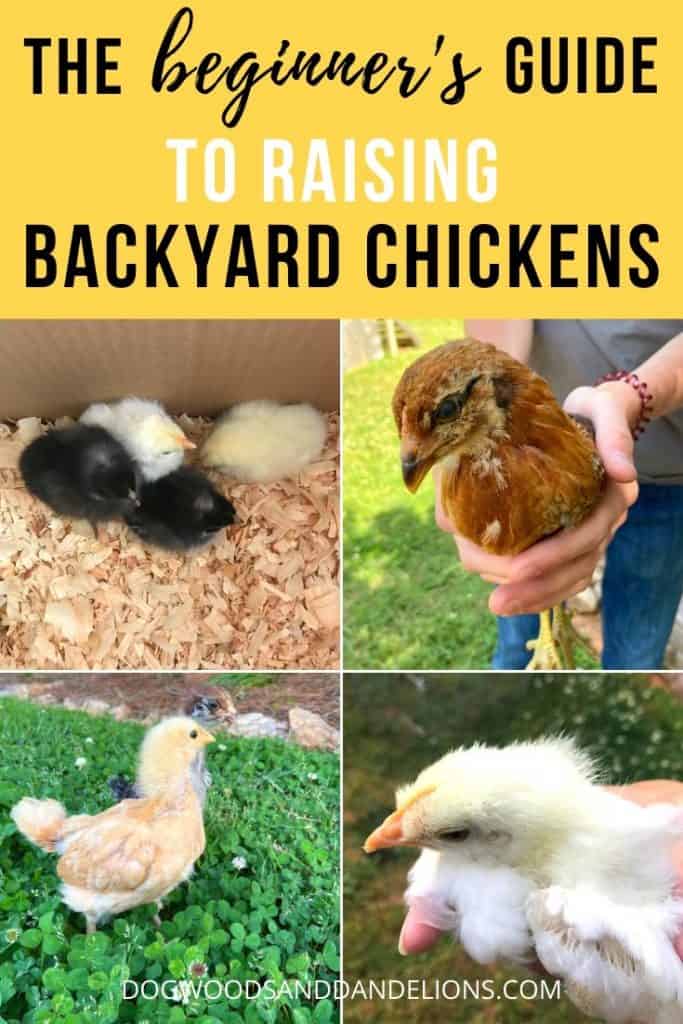Raising Backyard Chickens
So you decided to get some baby chicks. But do you really know what to do with them? Do you know what supplies you need? How long do they need to be indoors? When will I get my first egg? If you are a beginning chicken keeper this page will walk you through the process of how to get started raising backyard chickens.
Affiliate Disclosure: Please note that some of the links in this article may be affiliate links and I may receive a small commission if you purchase something through a link. It will not change your cost. As an Amazon Associate, I earn from qualifying purchases. For more information, see my disclosures page.)
Before You Bring Chicks Home
Before you bring baby chicks home, you really should have your brooder set up. Your brooder is what you plan to raise your chicks in until they are ready to go outside. You can use a cardboard box or a tote to keep costs down. You do need to be sure you have a way to cover it to keep the chicks inside. They learn to fly very early.
You will also need some pine shavings to line the brooder, a feeder, a waterer, and a brooder light, plus baby chick food.
LEARN: How to set up a brooder for baby chicks.
Caring For Your Baby Chicks
Once you bring your chicks home and get them settled in the brooder, you need to monitor them closely for the first few days. Check for pasty butt daily.
If you want friendly chickens, you should pick your chicks up each day and talk to them a bit. Check your heat source if you are using a heat lamp and move it each week to keep the brooder at the proper temperature. (If you want to make it easy on yourself get an Eco-Glow brooder. It’s much safer too!)
Clean your brooder box at least weekly and replace the shavings. A clean brooder means healthy chicks.
LEARN: How to care for your baby chicks.

What You Need In Your Chicken Coop
Before you can move your chickens outdoors, you need a secure coop and run. The coop is usually the most expensive part of raising backyard chickens. Your coop will need to have a feeder and waterer. You also need to prepare nest boxes for your chickens to lay their eggs in (unless you are raising meat breeds).
The floor of the coop will need additional pine shavings just like the brooder. And since chickens prefer to roost up high, you need to have some type of roost post in your coop for the chickens to sleep on.
Chickens will be much healthier if allowed outside, so I also recommend adding a secure run where the chickens can roam outdoors.
LEARN: How to build a secure coop and run.
Moving Chicks To The Coop
Chicks need to be fully feathered before moving them to their coop. Most chicks are fully feathered by about 6 weeks, but a few breeds take a bit longer. Be sure your coop is safe and secure before moving your chickens into the coop. See below if you are moving chicks in with older chickens.
LEARN: Moving chicks to the coop.
Should You Free-Range Your Chickens?
Allowing your chickens to free range is a matter of personal preference. It will depend on the predators in your area and your risk for loss. It will also depend on how near your neighbors are and whether the chickens (and their poo) bother them.
LEARN: The benefits and downfalls to free-ranging your chickens.

Integrating Chicks With Older Chickens
If you plan on mixing your chicks with older hens, there are lots of precautions you need to take to ensure the chicks don’t get picked on. If at all possible, wait until the baby chicks are fully grown before integrating them with another flock.
LEARN: How to integrate 2 flocks of chickens.
Chickens Losing Feathers?
When your chickens start to lose feathers, they are going through a phase called molting. For grown chickens, this usually happens in late summer or early fall. The first year, your chickens usually don’t molt.
There are ways you can help your chickens get through this yearly process by feeding supplements, etc.
LEARN: How to help your molting chickens.
Preparing Your Chickens For The Winter
There are several things to consider as you prepare your coop for the winter. In some areas, the coop may need to be insulated to protect the health of the chickens. You have to decide how to keep their water from freezing and how to also keep the eggs from freezing.
LEARN: What to do to prepare your chickens for the winter.
Show me all the Chicken Keeping Posts



